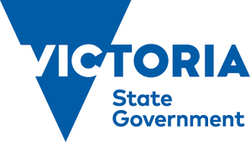Recruiting a new Manager
A step by step guide for Committees/Boards .
The Network considers the appointment of new Managers as crucial to the ongoing health and well-being of the Sector. We have put together some basic information based on our experience and knowledge, to assist Committees of Governance, in the process of recruiting new managers. This is not exclusive or compliant, but is a basic guide. There is a lot of other information and support available which we will be happy to assist you with, including interview questions and possible responses, getting your panel structure right or helping with Position Descriptions. So please call if we can assist you.
Recruiting the right Manager for your organisation
The appointment of a Manager is one of, if not, the most important decisions a COG can make and therefore requires a considerable amount of time and effort to ensure you employ the best person for the Organisation. The Manager is the face of your organisation, the person to whom you delegate the day to day operations, budgets, staff and volunteer management, program development and monitoring and the implementation of your policies and procedures. The Manager also has an important role in assisting the committee with determining strategic direction and planning advice. Whilst there is never a 100% sure proof way of ensuring you get the right person, there are procedures that help make the recruitment process as effective as it can be. The following steps may be helpful:
1. Policy
The COG or Board should ensure that there is a recruitment policy for the organisation and consider if it is still relevant and make any changes deemed necessary or update it to include any new legislation or Organisational changes.
Our Community has a multitude of policy documents available to you including ‘Recruitment of a CEO’ which could easily be simplified and adapted to suit your organisation.
Our Community has a multitude of policy documents available to you including ‘Recruitment of a CEO’ which could easily be simplified and adapted to suit your organisation.
2. Review : Is the position description still relevant?
When the manager position is vacated it is a good time to take stock and take a little extra time to review the position and determine if the PD reflects the current Role/Requirements. Some organisations have had coordinators in positions for many years and whom may not have added into their 'PDs', requirements or skills now necessary to carry out the positions. The PD should also outline very clearly, the specific roles and responsibilities of the position and determine the Key selection Criteria (KSC) and the baseline acceptable, in terms of qualifications and/or experience. There are resources available to assist with this and the Network have a bank of Position Descriptions available to you. The following link will take you to an excellent document prepared by ASU (Australian Services Union) who have kindly allowed us to use it. It aligns the PD to the way the duties, responsibilities etc. are identified and set out in the SCHADS award and makes it easier to map the PD against the correct classification. See document at end of page.
3.Budget
Do you have the budget to meet your requirements and attract the right person?
Ensure before you advertise the position that you have the funds to pay the employment rate and all the on costs. It is wise to base this estimate at the highest rate in the pay schedule, to ensure that if you get the right person and they have had experience in the Sector (eg a Manager from another organisation) you will be able to pay them on the level commensurate with their experience. If they haven’t been a manager in the Sector you can set the amount at the level you think appropriate. All of this should be decided prior to interviews as some applicants will require information about pay rates to determine if they are able to accept the position. Also ensure which award (SCHADS or the NH Collective Agreement) you are operating under as they have different levels of pay and conditions.
Ensure before you advertise the position that you have the funds to pay the employment rate and all the on costs. It is wise to base this estimate at the highest rate in the pay schedule, to ensure that if you get the right person and they have had experience in the Sector (eg a Manager from another organisation) you will be able to pay them on the level commensurate with their experience. If they haven’t been a manager in the Sector you can set the amount at the level you think appropriate. All of this should be decided prior to interviews as some applicants will require information about pay rates to determine if they are able to accept the position. Also ensure which award (SCHADS or the NH Collective Agreement) you are operating under as they have different levels of pay and conditions.
4. Advertising
Whilst it has been a practice of some organisations to fill positions with staff from within the organisation, an open and transparent recruitment process ensures that any current staff are able to apply for the position, as well as interested outsiders who may bring a new energy and outlook to the organisation. There are a number of Agencies that advertise specifically for the community sector and the Network also distributes vacancies to its member houses at your request.
Whichever method of advertising you decide on, it is highly beneficial to ask applicants to address the KSC in their application. Some employers stipulate that applications will not be accepted that don’t do this. It is a very easy way to help you determine who will be interviewed and makes applicants think through how they meet the requirements of the position. It can save you hours of sorting through resumes trying to determine who to interview.
Whichever method of advertising you decide on, it is highly beneficial to ask applicants to address the KSC in their application. Some employers stipulate that applications will not be accepted that don’t do this. It is a very easy way to help you determine who will be interviewed and makes applicants think through how they meet the requirements of the position. It can save you hours of sorting through resumes trying to determine who to interview.
5. The Interview Panel
The first thing you need to decide is who should be part of the interview panel. Whilst it is each organisation’s decision as to who is involved, it is not common recruitment practice for people vacating the position to be involved in appointing their replacement. The COG are the employers and those who will be working with the new person and therefore should be assessing their responses to the applicant. It is also beneficial to have a person external to your organisation that can bring another perspective to the interview. Panel members should not be other staff who are in less senior positions or who would be subordinates of the new employee.
6. Conducting the Interview
The Network has a range of questions, many of which are ‘open’ questions designed to get the maximum information from applicants. If required we will also provide a fact sheet with the type of responses to look for when asking them. The Network are happy to provide you with any assistance you require.
Once you have decided on the questions the panel decide who will ask each question and have a discussion about the types of responses expected. Remember to base your questions directly on the Key Selection Criteria.
An example of an open question would be:
"How would you go about designing new programs for the Centre? Explain the processes you would use or develop."
Response could include:
"I would look at the current program, what’s working what’s not, talk to staff get their opinion, talk to participants, maybe do a participant survey. Mini review, look at other services – what are they providing, are we repeating same programs? Look at the data from ABS, Local Govt and DFFH, what are the demographics? Are our programs pitched to the age of people in our area? To the demographics of the area? To the socio-economic status etc. Meet with cluster groups, ask colleagues in area etc."
*Other examples are available on request from the Network.
How to Assess the Interview.
The easiest way to support the interview process is to set up a small or simple checklist to score the applicant. This can be done as they answer each question by those not asking the question, or as an overall process with each of the panel doing their own assessment at the end and then comparing the given scores. Be sure to keep your notes brief, objective (not personal or subjective comments) and to the Key Selection Criteria as they can be requested by an unsuccessful candidate if they believe they have been discriminated against.
Once you have decided on the questions the panel decide who will ask each question and have a discussion about the types of responses expected. Remember to base your questions directly on the Key Selection Criteria.
An example of an open question would be:
"How would you go about designing new programs for the Centre? Explain the processes you would use or develop."
Response could include:
"I would look at the current program, what’s working what’s not, talk to staff get their opinion, talk to participants, maybe do a participant survey. Mini review, look at other services – what are they providing, are we repeating same programs? Look at the data from ABS, Local Govt and DFFH, what are the demographics? Are our programs pitched to the age of people in our area? To the demographics of the area? To the socio-economic status etc. Meet with cluster groups, ask colleagues in area etc."
*Other examples are available on request from the Network.
How to Assess the Interview.
The easiest way to support the interview process is to set up a small or simple checklist to score the applicant. This can be done as they answer each question by those not asking the question, or as an overall process with each of the panel doing their own assessment at the end and then comparing the given scores. Be sure to keep your notes brief, objective (not personal or subjective comments) and to the Key Selection Criteria as they can be requested by an unsuccessful candidate if they believe they have been discriminated against.
7. Reference Checks
It is crucial to all appointments but particularly with senior staff, to ensure that you do due diligence when considering the appointment of your chosen applicant. They will provide you with referees which should always include a person who has worked directly with them. If they have not provided such, it is okay to ask them for referees who can attest to their work performance. In instances where referees are not included in resumes, you can request them at interview. Some applicants may not want their current employer to know they are applying for another position and may request that you only approach their referees if you are seriously considering them. If you have any issue with requests like this, they should be discussed at the interview. Remember to base your referee questions on the Key Selection Criteria and be mindful of not going into any personal or subjective questions which might be misunderstood.
It is a good idea (unless they were all unsuitable) to notify unsuccessful applicants after the successful applicant has agreed to accept the position. Sometimes in discussions with the successful applicant they may decline the position and if you had another potential applicant you can then call them in for a second interview without going through the whole process again.
It is also okay to advertise again and request the ‘previous applicants need not apply’ if there were no other likely contenders in the first round.
It is a good idea (unless they were all unsuitable) to notify unsuccessful applicants after the successful applicant has agreed to accept the position. Sometimes in discussions with the successful applicant they may decline the position and if you had another potential applicant you can then call them in for a second interview without going through the whole process again.
It is also okay to advertise again and request the ‘previous applicants need not apply’ if there were no other likely contenders in the first round.
8. Other Considerations
Police Checks/Working with children
There are some positions where there are legal requirements regarding the above e.g. Child care staff but you will need to refer to your organization's policies to determine if either are required by the applicant. If there is a requirement it should also be listed in the Position Specifications. Ensure you have a policy that deals with procedure when a police check returns a negative finding relating to the specific position.
Contracts of employment
If you are a member of Jobs Australia you can access information and direction from them regarding any adverse findings with Police checks etc. or in how to word your contracts. It is also advisable to be clear on what the probation period is, how the applicant will be appraised and ensuring that the process are in place in order to do so. e.g there should be a clear work plan with outcomes and a process determined at the outset that is clear on how the new appointment will be appraised in relation to permanent appointment.
If you have any concerns at any point in the process, please talk to Jobs Australia if you are a member, or Fairwork if you are not.
Legal Requirements
There are specific requirements under legislation that are your responsibility to ensure when contracting the new staff member. You must provide them with a copy of the Fairwork National Employment Standards Employee entitlement sheet and a copy of their signed contract outlining wages, conditions.
They should also be aware of any other relevant information regarding your own policy and procedures.
There are some positions where there are legal requirements regarding the above e.g. Child care staff but you will need to refer to your organization's policies to determine if either are required by the applicant. If there is a requirement it should also be listed in the Position Specifications. Ensure you have a policy that deals with procedure when a police check returns a negative finding relating to the specific position.
Contracts of employment
If you are a member of Jobs Australia you can access information and direction from them regarding any adverse findings with Police checks etc. or in how to word your contracts. It is also advisable to be clear on what the probation period is, how the applicant will be appraised and ensuring that the process are in place in order to do so. e.g there should be a clear work plan with outcomes and a process determined at the outset that is clear on how the new appointment will be appraised in relation to permanent appointment.
If you have any concerns at any point in the process, please talk to Jobs Australia if you are a member, or Fairwork if you are not.
- Fairwork Infoline Advice:13 13 94
- Jobs Australia 1800 331 915 (Members hotline)
Legal Requirements
There are specific requirements under legislation that are your responsibility to ensure when contracting the new staff member. You must provide them with a copy of the Fairwork National Employment Standards Employee entitlement sheet and a copy of their signed contract outlining wages, conditions.
They should also be aware of any other relevant information regarding your own policy and procedures.
Manager Induction
Again this is the ideal time to ensure you have the policies in place to support the new applicant which includes a Manager Induction Process. We are able to assist you with examples if you don’t have one and there is a good basis for this in the Policy bank from Our Community referred to earlier.
Network Induction Support for Managers
The Network runs joint Induction Sessions for new Managers, and has also complied an Induction Manual covering all basic information regarding the Sector, to assist with immediate knowledge at hand for Managers who are often working in isolation and sometimes without handover. One on one mentoring with a Networker is also provided at the workplace. Please click on the button above for the latest Induction Manual.


